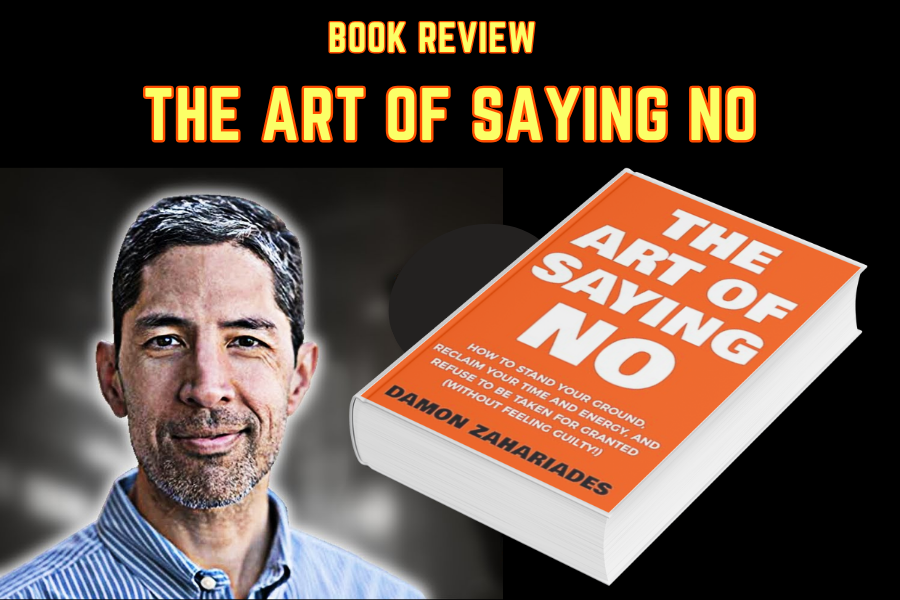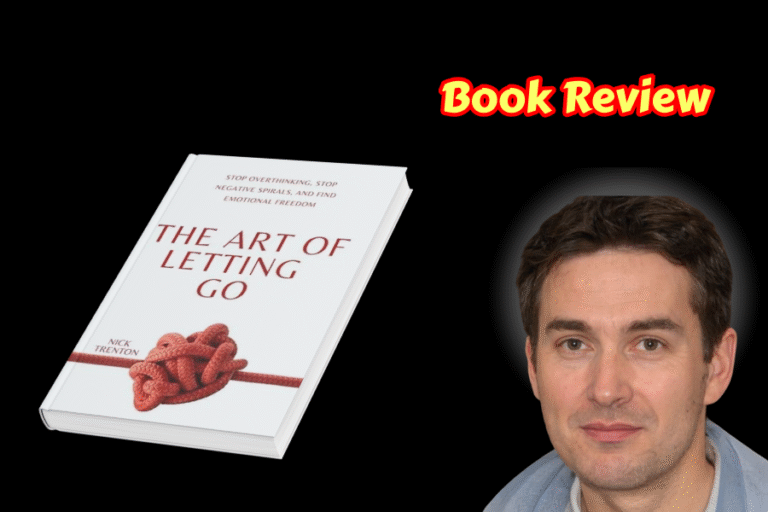Reviewed by: Quratulain Khalid, Expert in Personal Development & Communication
In a world where burnout is a badge of honour and boundaries are too often mistaken for selfishness, Damon Zahariades’ “The Art of Saying No” is a timely, powerful, and practical guide for anyone who struggles with people-pleasing tendencies. Whether you’re a busy professional, a stay-at-home parent, or someone who feels chronically stretched thin by the demands of others, this book offers a strategic and emotionally intelligent framework for reclaiming your time, energy, and dignity.
Summary and Core Premise
At its heart, The Art of Saying No is a declaration of personal sovereignty. Zahariades, himself a reformed people-pleaser, opens the book with a vulnerable account of his lifelong inability to say no—a habit that led to exhaustion, resentment, and a loss of self-respect. From there, he builds a compelling case for why learning to say no is not just a matter of personal convenience, but one of psychological well-being and self-respect.
The book focuses on the psychological, emotional, and social reasons why people tend to say yes when they mean no—ranging from fear of conflict, guilt, social conditioning, to the desire for acceptance. Zahariades not only identifies these pitfalls but deconstructs them with clarity, making readers reflect on their own patterns of compliance.
What Makes It Stand Out?
1. Practical Frameworks, Not Just Theory
This is not a vague self-help monologue. Zahariades provides 10 practical strategies to say no effectively and gracefully—whether it’s to a demanding boss, a manipulative friend, or even a well-meaning family member. These strategies are not only easy to remember but designed to be applied in real-time conversations.
2. Boundary-Building as a Life Skill
What elevates this book above similar titles is its emphasis on boundary-building as a holistic life skill. Saying no isn’t just about denying requests—it’s about honouring your values, priorities, and emotional bandwidth. The book teaches you how to establish personal boundaries in both your professional and personal life—without burning bridges.
3. Situation-Specific Advice
The bonus chapters are gold. Whether you’re saying no to your spouse, your children, your boss, or even a stranger asking for time, Zahariades offers tailored advice for each relationship dynamic. He understands the nuances of social hierarchy and emotional obligation, and he gives readers the tools to navigate them with confidence and poise.
Emotional Intelligence at Work
What truly makes this book emotionally resonant is Zahariades’ consistent reminder that saying no doesn’t make you a bad person. In fact, it often leads to greater mutual respect. The act of asserting yourself, when done with empathy and clarity, invites others to do the same—creating healthier, more honest relationships.
He reminds us that every “yes” given without genuine consent is a silent betrayal of the self, and over time, that erodes mental peace, drains energy, and breeds quiet resentment. Saying “no” is not an act of defiance—it is an act of emotional maturity.
Key Takeaways
- You are not obligated to say “yes” to every request—your time is valuable.
- Boundaries are not barriers; they are bridges to healthier relationships.
- The guilt associated with saying no is learned behaviour—and can be unlearned.
- Saying “no” is a muscle—the more you use it, the stronger it gets.
Final Verdict
⭐ Rating: 9/10
The Art of Saying No is a must-read for anyone trapped in the cycle of overcommitment and silent suffering. It’s concise (yet rich), relatable (yet deeply insightful), and filled with actionable tools to reclaim control over your life. Whether you’re new to setting boundaries or looking to reinforce them with better language and technique, this book delivers.
Damon Zahariades doesn’t just teach you how to say no. He gives you permission to value yourself—and that’s perhaps the most liberating message of all.







